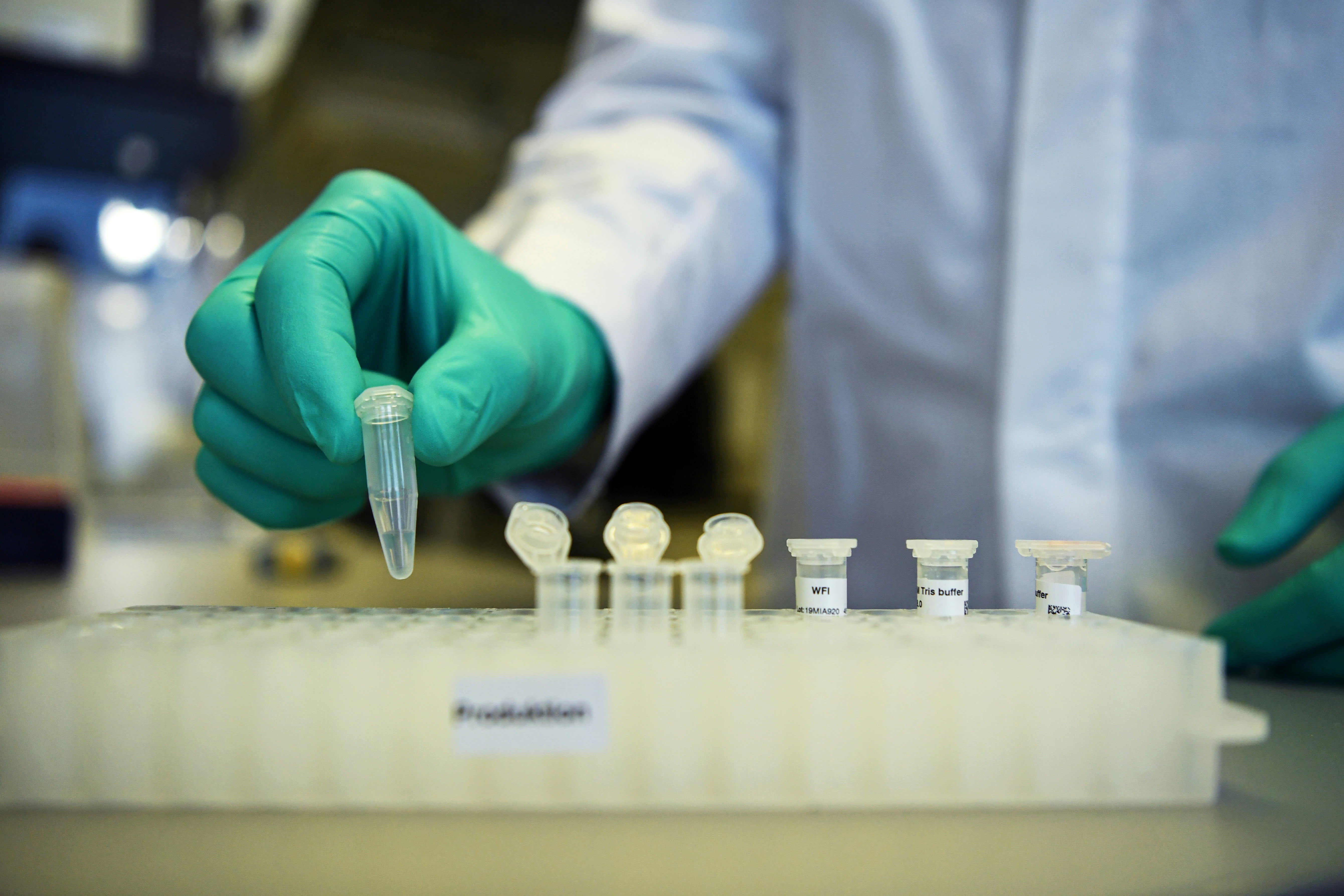At a laboratory in Tuebingen, Germany, on March 12, 2020, an employee of the German biopharmaceutical company CureVac exhibits research on a vaccine for the coronavirus (COVID-19) disease. Despite disappointing clinical trial data showing the Covid-19 vaccination is only 48% effective, CureVac aims to keep working on it. Andreas Gebert | REUTERSCureVac plans to keep working on its Covid-19 vaccine despite disappointing clinical trial results showing the injection is only 48% effective. On Wednesday, the German biotech firm revealed the results of its CVnCoV coronavirus vaccine clinical trials, demonstrating that the shot was 48 percent effective against Covid of any severity across all age groups and 15 variations. On CNBC Thursday, CureVac’s CFO Pierre Kemula defended the vaccine, claiming that clinical trials were undertaken at a time when many new strains of the virus were proliferating around the world. “We need to engage with the EMA [European Medicines Agency] right now, and we want to make sure we have an open communication and provide all of the data we have to determine the road forward,” he said on CNBC’s Squawk Box Europe on Thursday. Given asked if it was worthwhile to continue developing the vaccine when other successful vaccines have already been deployed in Europe and elsewhere, Kemula replied the company has contractual responsibilities to meet. “With that in mind, I believe we need to plow through,” he added. “We have a contract with the European Commission to supply 225 million doses of the drug.” “There are plenty of vaccines to be administered, and many people under the age of 60 have yet to receive the vaccine. So if we can help combat the pandemic in the immediate term, but also in the medium term with these different routes of [multivalents], that’s something we’ll keep working on.” Vaccines that are multivalent or polyvalent are meant to protect against multiple strains of a virus. The CureVac trial, which enrolled 40,000 people in ten Latin American and European nations, found that the vaccination was more effective in younger people. Those aged 18 to 60 had a 53 percent efficacy rate against disease of any severity, and a 77 percent efficacy rate against moderate and severe disease in the same age range. However, because Covid-19 is more dangerous to older individuals, the trial results are disappointing, not least because two other messenger RNA (mRNA) vaccines, from Pfizer-BioNTech and Moderna, have proven to be over 90% effective in preventing Covid-19 infection. CureVac’s stock plunged as much as 13% in pre-market trading on Thursday. In a statement released Wednesday, CureVac CEO Dr. Franz-Werner Haas defended the results, claiming the vaccine “demonstrates a great public health benefit” for those aged 18 to 60 and will be a “essential contribution to help manage the Covid-19 pandemic and the dynamic variant dissemination.” “The current backdrop of an increasingly diversified array of Covid-19 variations,” he continued. Over the course of the pandemic, other varieties have emerged, some more virulent than others — such as the alpha variant discovered in the United Kingdom and the delta variant discovered in India — and Kemula believes mutations will continue to occur. “As more patients become infected with coronavirus, we may expect the disease to continue to evolve as it progresses and develops additional varieties,” Kemula added. “How we can better manage this with current vaccines but also with various boosters (booster doses) potentially,” he continued, the industry needed to think ahead./n
Read MoreCureVac to ‘plow forward’ with Covid vaccine despite disappointing results
2021-07-01T10:47:44-04:00July 1st, 2021|





